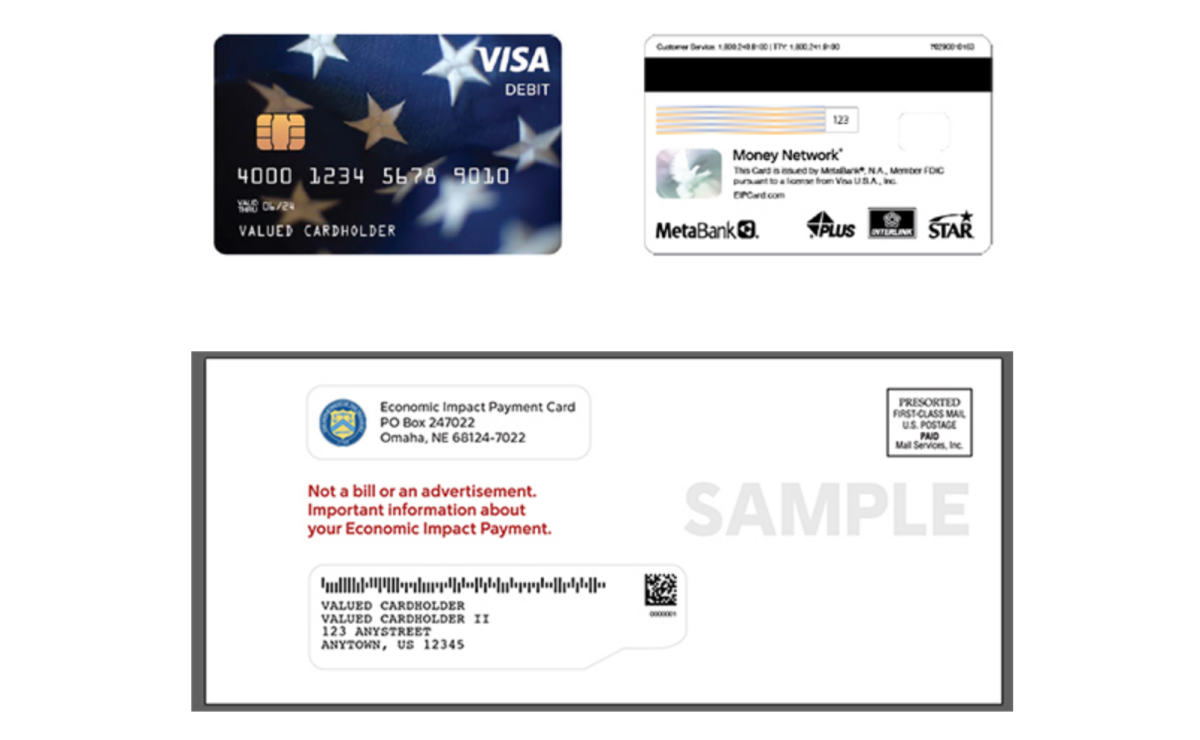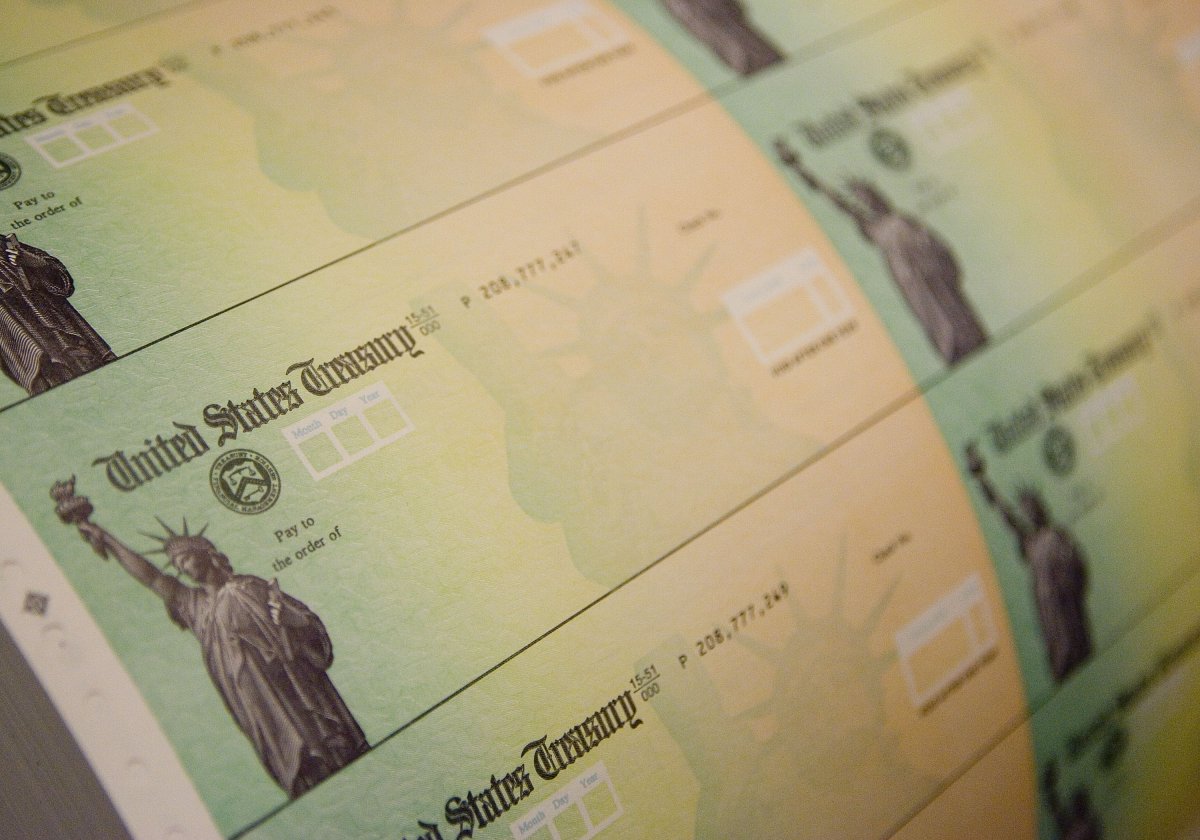Stimulus payments arriving in the form of prepaid debit cards are being confused for scams.
Some Americans expecting their second $600 payment are reportedly discarding the mail, believing the cards to be fake.
About 8 million Americans are set to receive their payment as a prepaid debit card mailed to their home address, instead of a paper check or direct deposit.
The switch may cause confusion for some, prompting the Internal Revenue Service (IRS) to warn the public that the second payment may be in a different form than the first.

Utah resident Ty Nielsen said he had received a letter in the mail on Friday, January 22. It arrived with "economic stimulus" printed in the corner, prompting Nielson to say he was "almost positive it was a scam."
Accompanying the letter was a debit card in a nondescript envelope.
"This just looked like, it was an envelope with a big window on it and it didn't say government on it anywhere," Nielsen told KSL-TV.
When he checked with the Better Business Bureau, he was shocked to learn that it really was his stimulus payment. "I didn't quite know who to trust and I get so much junk mail," Nielsen said.
He is not alone in mistaking the payment for a scam. Britta Clark with Utah's Better Business Bureau said she had heard of many others who had thrown away their cards.
Kathy Stokes, director of fraud prevention programs at the AARP, also said people were mistaking the cards for junk mail.
"They think it's a scam and they discard it, when in fact, this is the actual economic impact payment," Stokes said.
According to the IRS and as reported by KSL-TV, those who throw away their card cannot be issued with a second payment and will need to try to claim it when filing their tax return.
Government officials urged people to keep an eye on their mail. The debit cards are set to come in plain white envelopes with a Treasury Department seal. The cards will have a Visa logo on the front and have been issued by MetaBank, which is named on the back.
"Some people who received a paper check last time might receive a prepaid debit card this time, and some people who received a prepaid debit card last time may receive a paper check," the IRS said.
The IRS and the Treasury Department began delivering the second round of payments on December 29 after former President Donald Trump signed a $900 billion economic relief package on December 27.
The payments are generally $600 for single people who earn less than $75,000 and $1,200 for married couples who file taxes jointly and earn less than $150,000. Those earning more are set to receive reduced payments.
People with qualifying children will receive $600 for each child. Dependents who are older than 17 are not eligible for the additional payment.
The IRS said people could track their payments through its Get My Payments portal.
Under President Joe Biden's $1.9 trillion coronavirus relief plan, a $1,400 third round of stimulus payments could be passed by Congress by the end of March.
The pandemic relief package, dubbed the American Rescue Plan, still faces significant hurdles on the path to becoming law. Several moderate Republican lawmakers have expressed reservations, suggesting it will be tough to get the deal through the Senate although a slim majority might be enough with some procedural maneuvering.
The $1.9 trillion proposal also includes additional funds for small businesses, an increase in unemployment benefits from $300 to $400 per week, money for COVID-19 vaccination and testing and a mandate to raise the national minimum wage to $15 an hour.

Uncommon Knowledge
Newsweek is committed to challenging conventional wisdom and finding connections in the search for common ground.
Newsweek is committed to challenging conventional wisdom and finding connections in the search for common ground.
About the writer
To read how Newsweek uses AI as a newsroom tool, Click here.








